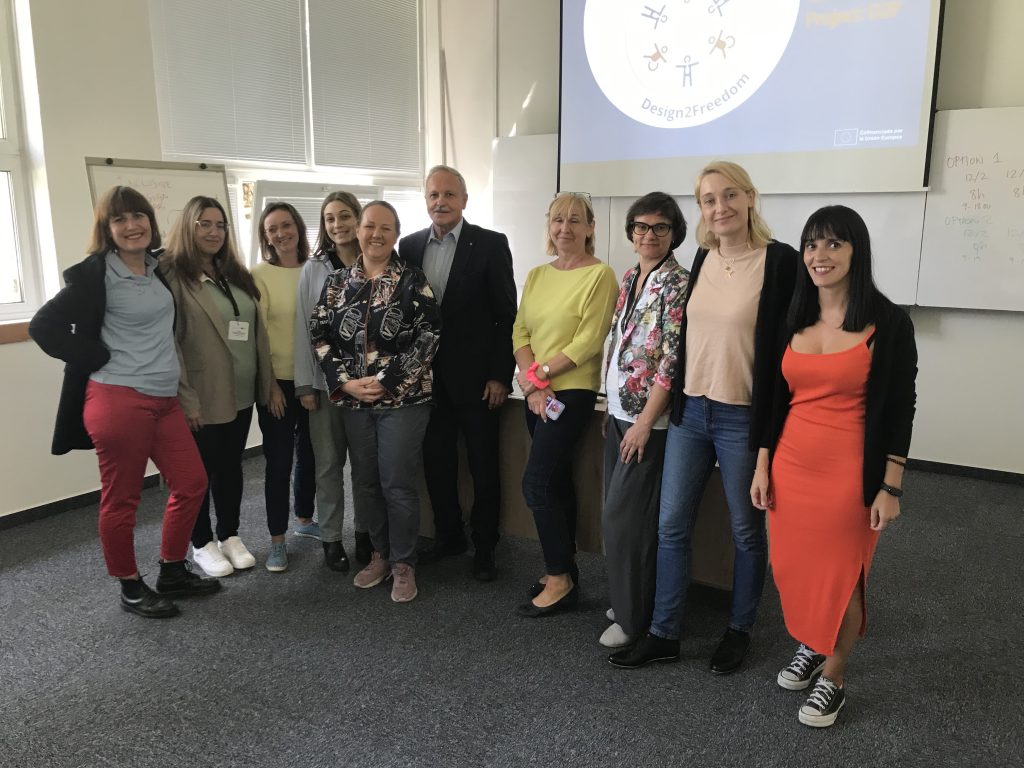
CITIC of the University of A Coruña (UDC) participated in the second transnational meeting of the European Design2Freedom project in Košice, Slovakia.
The CITIC of the University of A Coruña (UDC), in partnership with the Spanish Confederation of People with Physical and Organic Disabilities (COCEMFE) and other European partners, continues its commitment to social inclusion and accessibility through the European project Design to Freedom (D2F). On September 19 and 20, CITIC researchers María del Carmen Miranda Duro and Betania Groba González participated in a working session held in Košice, Slovakia. This event, co-organized with the Technical University of Košice (TUKE) and other European collaborators, aimed to promote best practices in person-centered models and explore new technological solutions for including people with disabilities in educational and social environments.
The session began with participating organizations sharing examples of best practices in person-centered models, both within and beyond the university setting. Each entity had 10 minutes to present its initiative, followed by a brief Q&A session that fostered a collaborative and learning-oriented atmosphere.
One of the highlights was an introduction to an upcoming hackathon organized by UDC, designed to engage participants in creating inclusive solutions. Attendees engaged in a “mini-hackathon” activity, which facilitated a deeper understanding of the concepts central to the project.
Following a break, TUKE presented its accessibility support technologies, showcasing advancements and resources aimed at enhancing inclusion. Participants also toured TUKE’s accessible campus facilities, underscoring the importance of inclusive educational environments.
Additionally, attendees visited the Slovak Union of the Blind and Visually Impaired, where they learned about the services and support offered by the organization, reinforcing Design to Freedom’s commitment to disability inclusion.
On the second day, teams presented the outcomes of the hackathon to a jury led by UDC, proposing innovative ideas for improving daily life for people with disabilities. The day continued with a session led by COCEMFE and UDC, outlining the structure and themes for the project’s next phase, LTT2, set to take place in A Coruña in early December. Roles and evaluation tools were also defined among the partners.
Design to Freedom, funded by the Erasmus Plus Program and co-financed by the European Commission, remains focused on promoting the autonomy of people with disabilities through assistive technologies and the creation of accessible environments. The Košice sessions strengthened collaboration among European entities and reinforced a shared commitment to inclusion.





